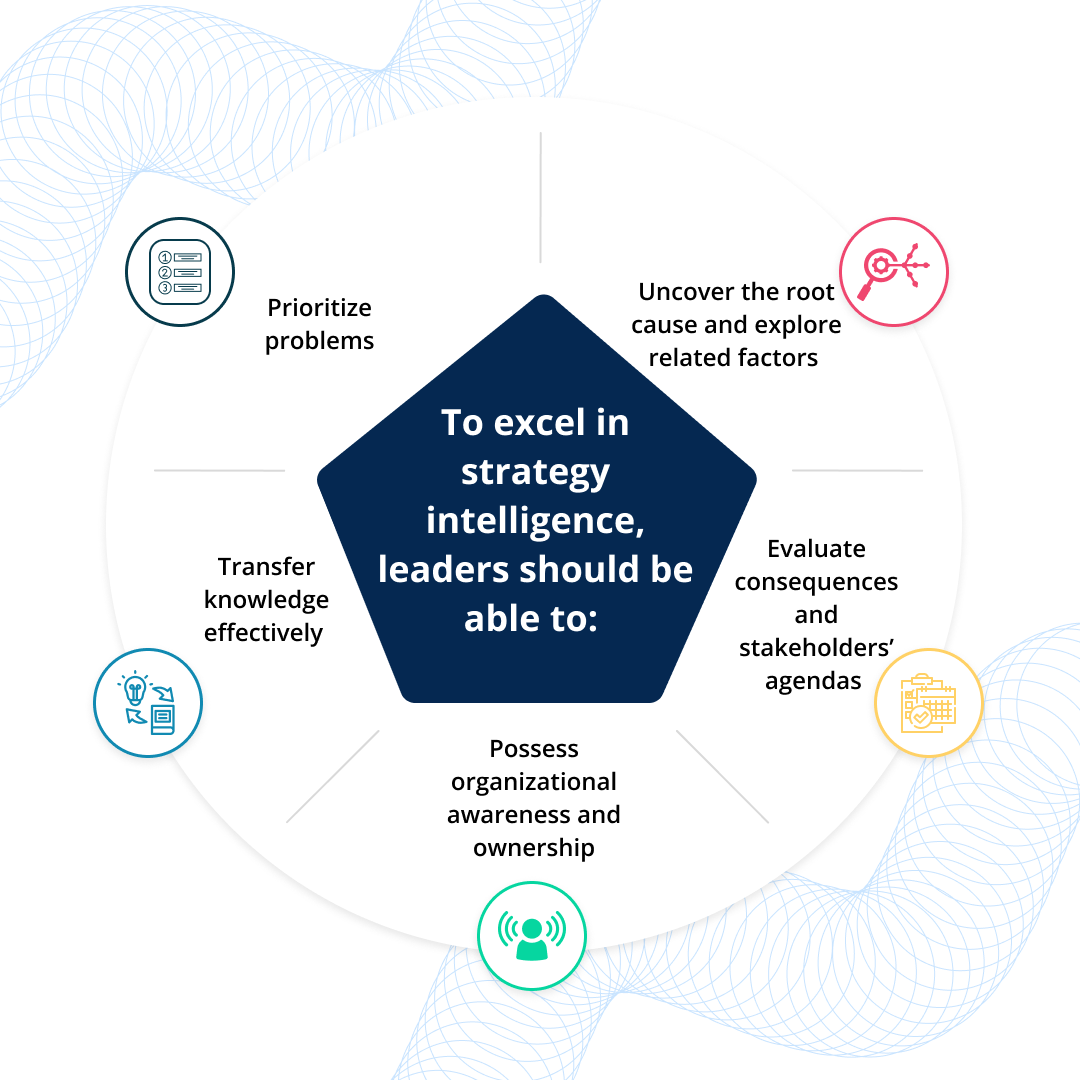AMBIZ
VIEWS
What
Strategy Intelligence Means to Leaders
In the
fast-paced world of business, inefficient decision-making can be a silent killer. As organizations
grow larger, the chain of command becomes longer, amplifying the challenges of making timely and
effective decisions. The consequences of one ineffective decision can reverberate throughout the
entire organization, slowing down crucial business processes and, worst of all, leaving customers
dissatisfied. Brace yourself, for when customers aren’t satisfied, profits can dwindle before your
very eyes.
To avoid
this perilous fate, leaders must possess and demonstrate a crucial skill: strategy intelligence.
This aptitude allows leaders to navigate the treacherous waters of decision-making process with
finesse. But what does it take to truly excel in this arena?

- Prioritize problems
As
you ascend the corporate ladder, your responsibilities multiply. Learn to identify what truly
matters and prioritize accordingly, ensuring efficient use of your time and resources. Not
everything required immediate attention.
- Uncover the root cause and explore related factors
Critical thinking is the backbone of effective leadership. Dig deep to uncover the underlying
causes of problems and explore the variables that may be intertwined. By understanding the
broader context, you can develop effective and comprehensive solutions.
- Evaluate consequences and stakeholders’ agendas
Leaders must weigh the impact of their decisions on various stakeholders. Assess both positive
and negative outcomes before presenting your recommendations. Ensure that your actions align
with the interests of the organization and its stakeholders.
- Possess organizational awareness and ownership
Great leaders transcend personal interests. They act in the best interest of the organization,
considering how their decisions impact the overall success. Actions should be taken for the
greater good, not just personal gain.
- Transfer knowledge effectively
Master the art of communication. When conveying information from your team to higher-ups, you
must know what’s vital and how to communicate it appropriately. By providing your superiors with
essential data and eliminating unnecessary variables, you streamline the decision-making
process.
In this
challenging landscape, strategic leaders hold the key to the thriving success of the organizations.
By honing their strategy intelligence, they fortify their organizations against the perils of
inefficient decision-making.
 CREDENTIALS PROGRAM
CREDENTIALS PROGRAM










